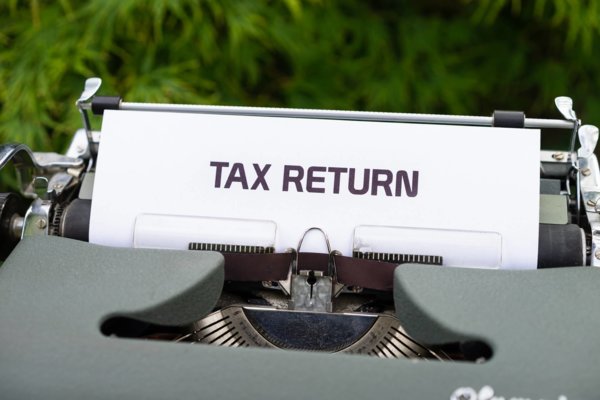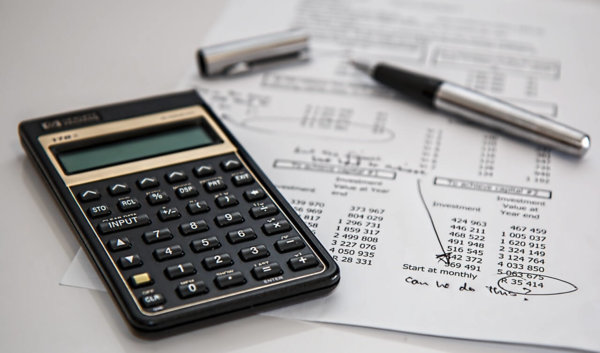What Happens If You Don’t File Taxes? - The Full Guide
We all know that it's important to file your taxes, and that can have some pretty severe consequences if you don't file them properly. But what exactly happens if you don't file your taxes? Well, there are a lot of different things that could happen. Not filing your taxes, filing them improperly, or even just missing the deadline can all lead to serious penalties.
If you're concerned about the consequences of not filing your taxes and want to know what they are, then this guide has got you covered. Here we'll take you through what you need to know about why you should pay your taxes and the repercussions you may face if they aren't filed properly.
We'll also cover what you need to do if you haven't filed your taxes, from dealing with the consequences, to how you can reduce the possible issues you can face. So let's get started, shall we?
Also read: How Much Do You Understand Tax On Bonuses?

Why Should You File Your Taxes?
The first thing you should consider is why you should file your taxes. Taxes are important for a multitude of reasons; these include contributing to national services such as healthcare and education, improving local infrastructures such as roads and transportation, and adding to social security funds.
Everyone needs to pay taxes and, in turn, everyone benefits from them. Everybody pays a different amount in tax based on factors such as income, location, and statuses like marriage and children.
As a result, you need to provide clear and precise information to avoid over- or underpaying your taxes. This is why filing your taxes is so important - providing the right information will stop you from paying more than you should, as well as paying too little (which counts as tax fraud).
Also read:The Guide To Futa Tax Rate 2020
What Happens If You Don't File Your Taxes?
So what happens if you don't file your taxes at all? Well, there are many different scenarios that can play out depending on which type of tax you owe and whether you've filed before. Let's look at each scenario separately:
Also read: Your Ultimate Guide To Tax Preparation Costs
1) Failure To Pay Tax
This is one of the most common ways people fail to file their taxes. It's easy to forget about your taxes when you have other financial commitments to deal with, but failing to pay your taxes means that you won't receive any money back from the government. In fact, you could end up owing interest and penalties to the IRS, including fines, felony charges, and even time in prison.
2) Late Filing
This is another way that people often fail to file their taxes, although it's less likely than failure to pay tax. When you miss the deadline to file your taxes, you're still required to pay the standard rate of tax owed, but you won't receive any refunds.
The only difference between late filing and failure to pay tax is that you can receive an extension to file your taxes, meaning that you can file your taxes later in the year as long as you request one as soon as possible after the deadline (which is April 15 every year).

3) Filing Your Taxes Incorrectly
This is when the figures you put on your tax forms aren't accurate, meaning that you may be paying too much or too little in tax. While it might not seem as big of a deal if you pay too much in tax, the consequences for it can be just as severe as if you paid too little.
For instance, if your tax return is too high due to a misrepresentation on your tax forms, you can be liable for investigation by the IRS in addition to having to pay back the excess. If you've deliberately put the wrong information while filing your taxes, either to pay less in tax or to get a higher return, you could be facing harsh fines and even prison time.
As you can see, it's important to properly file your taxes, on time and with the correct information. Failing to do so can land you in hot water with the IRS, and puts you at risk of severe consequences, like fines and felony charges. Making sure that your taxes are filed before the deadline (April 15) will ensure that you pay the correct amount and don't get into any trouble with the IRS!
Also read: Medical Deductions: Tax Considerations For Cancer Patients
What Do I Do If I've Missed The Tax Deadline?
If you've missed the deadline for filing your taxes, there are a couple of steps that you'll need to take. As long as the deadline hasn't passed, you can apply for an extension. Like we mentioned earlier, this will allow you to file your taxes later on in the year. You can also make payments towards your taxes, although they must be made within 30 days of the original deadline.
Once the extension period has passed, however, you won't be able to file for an extension or make any kind of payment. This means that you'll need to pay what you owe immediately, and then wait until next year to file your taxes.
Also read: 5 Tips To Avoid Tax Penalties During A Pandemic
How Can I Make Sure That My Taxes Are Accurate And On Time?
The best way to avoid these issues is to file your taxes correctly the first time around. To help you out, here are some tips:
1) File Early
One of the easiest ways to ensure that you're filing your taxes on time is to file early. By doing so, you'll have plenty of time to review your returns and catch any mistakes you might have made. Just make sure that everything is fully up-to-date by the time tax season rolls around!
2) Consult An Accountant
If you aren't sure about how to file your taxes, you might benefit from consulting an accountant. They will be able to analyze your income to help you find out all the information you need to know, and will give you advice on how you should be filing your taxes.
3) Check The IRS Website
The IRS website is full to bursting with information and resources that are designed to help you file your taxes correctly. It covers everything from what forms you need and how to fill them in, to how much tax you should be paying in total. As they are the ones who will be collecting your taxes, the IRS wants to make sure everything is sorted properly to avoid any issues or complications.

Final Thoughts
Filing your taxes can be an intimidating prospect, especially if you're new to sorting out your own taxes. While the possible consequences for failing to file your taxes properly might be concerning, as long as you follow the right procedures you won't have anything to worry about.
So now you know a bit more about what happens if you don't file your taxes, what you can do if you've missed the deadline, and some handy tips to avoid any issues this tax season. Now all you have to do is make sure all your finances are sorted and your taxes are properly filed in time for when tax season comes around.
The best thing you can do is to keep hold of your pay stubs so you know exactly how much you should set aside for taxes. Let's get you started. Choose a template of your liking and begin creating your paystub today with our paystub creator!
Good luck!
 Our customer support is available 24/7:
Our customer support is available 24/7:

